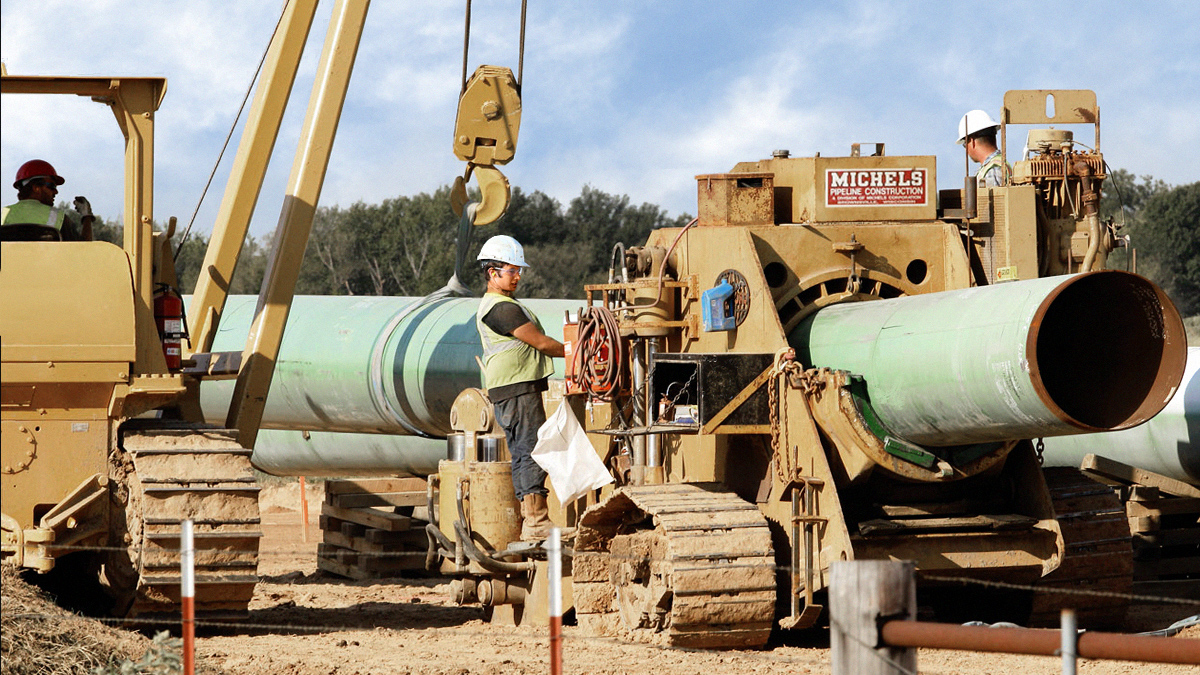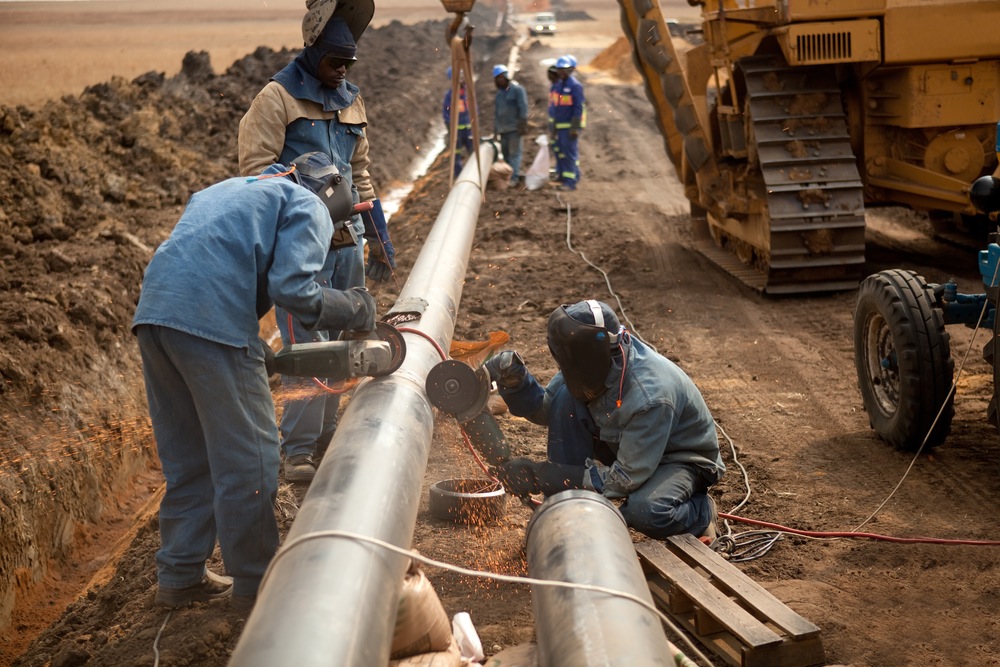Midland oilfield pipeline services: Why environmental stewardship are essential
Wiki Article
Recognizing the Key Features of Pipeline Providers and Their Effect on Performance
Pipeline services play a crucial duty in different markets, affecting functional effectiveness substantially. Secret functions, such as advanced monitoring modern technologies and maintenance methods, are essential for decreasing downtime. In addition, regulatory compliance assurances security and environmental management. The interaction in between layout, framework, and economic factors can complicate these procedures. Comprehending how these aspects effect total performance raises essential concerns regarding best methods and future growths in the area.The Role of Technology in Pipeline Tracking
As innovations in technology remain to advance, the importance of reliable pipeline tracking has ended up being significantly evident. Modern pipeline systems rely upon advanced surveillance tools that boost functional performance and security. Technologies such as real-time information analytics, sensing units, and drones supply operators with prompt understandings into pipeline conditions, allowing them to discover leakages, corrosion, and various other potential concerns prior to they rise into significant issues.The integration of Internet of Things (IoT) devices has changed typical monitoring methods, permitting for continuous monitoring and automated coverage. This positive approach not just lessens dangers however likewise optimizes maintenance routines and resource appropriation. Furthermore, progressed software application platforms promote information visualization and interpretation, equipping decision-makers to respond swiftly to anomalies. Collectively, these technical developments not only enhance pipe stability but also foster ecological stewardship by reducing the potential influence of leaks and spills.
Upkeep Approaches for Improved Performance
Effective maintenance strategies are crucial for maximizing pipeline efficiency. Implementing predictive maintenance methods, adhering to routine assessment procedures, and establishing durable emergency situation response plans can considerably improve operational dependability. These approaches not just decrease downtime but also add to the general safety and honesty of pipeline systems.Predictive Maintenance Strategies
Anticipating upkeep strategies are progressively acknowledged for their capability to improve functional effectiveness in pipeline services. By leveraging data analytics and keeping track of innovations, these strategies allow operators to expect devices failings before they happen. This positive method lessens unexpected downtime, lowers maintenance expenses, and expands the life expectancy of crucial properties. Sensors and IoT tools play a pivotal duty in accumulating real-time information, enabling the evaluation of devices health and wellness and efficiency patterns. Machine knowing algorithms assess this information to identify patterns and forecast potential concerns. Pipeline drivers can schedule upkeep tasks throughout non-peak times, maximizing resource allowance and making certain continual procedure. Inevitably, the fostering of predictive maintenance cultivates an extra trusted and effective pipe facilities.
Routine Examination Protocols
Routine evaluation methods offer as a foundation of maintenance methods intended at boosting efficiency in pipe procedures - Creek Pipe local contractor. These protocols involve systematic evaluations of pipe integrity, concentrating on finding prospective problems before they intensify. Routine examinations normally consist of aesthetic assessments, leakage detection modern technologies, and stress tracking to guarantee peak performance. By adhering to established routines, drivers can recognize corrosion, material wear, or obstruction, thus minimizing downtime and fixing prices. Furthermore, information collected throughout evaluations can notify predictive upkeep efforts, permitting for a positive method to pipeline administration. Eventually, regular examinations not just prolong the lifespan of pipeline infrastructure but additionally add to more secure and much more reliable transportation of sources, reinforcing overall operational effectivenessEmergency Situation Response Preparation
Emergency situation response planning is important for keeping efficiency in pipeline operations, guaranteeing that drivers are prepared to resolve unanticipated occurrences swiftly and successfully. A well-structured emergency situation response strategy consists of clear procedures, assigned roles, and interaction methods to mitigate risks connected with pipeline failings. Regular drills and training enhance group preparedness and acquaint employees with emergency situation treatments. In addition, having easily offered resources, such as spill containment devices and emergency contact lists, can substantially decrease reaction times. By integrating real-time surveillance technologies, operators can promptly recognize and react to concerns, decreasing ecological influence and operational downtime. Eventually, a comprehensive emergency situation action plan not just safeguards possessions and workers however likewise reinforces the general effectiveness of pipe solutions.Regulative Conformity and Safety And Security Requirements
Governing compliance and safety criteria play a vital role in the pipe solutions sector. Creek Pipe Midland TX. Complying with market guidelines guarantees that companies carry out efficient safety and security protocols and take the chance of administration strategies. This commitment not just secures workers and the setting but also boosts overall operational effectivenessConformity With Sector Regulations
Conformity with sector laws is vital for making sure the security and performance of pipeline operations. Regulative frameworks, such as those established by the Environmental Security Firm (EPA) and the Pipeline and Hazardous Products Safety Management (PHMSA), set rigorous standards that operators need to abide by. These laws cover different aspects, including useful reference pipeline design, construction, upkeep, and monitoring, ensuring that systems operate securely and effectively. Non-compliance can cause serious penalties, functional delays, and environmental threats. By sticking to these laws, pipe business not only shield public safety and the environment but additionally improve their functional efficiency. Ultimately, governing conformity cultivates depend on among stakeholders, guaranteeing that pipe services can run perfectly in a competitive landscape while fulfilling lawful obligations.
Safety Protocol Execution
Effective safety method application is a necessary part of pipeline operations, carefully linked to regulatory conformity and security criteria. Following these methods not just guarantees the security of personnel yet additionally safeguards the environment and framework. A durable safety and security structure includes normal training, thorough assessments, and making use of proper safety tools. Organizations needs to continue to be attentive in upgrading their procedures to show adjustments in guidelines and technological innovations. Compliance with recognized safety and security standards minimizes the risk of accidents and boosts functional performance. Furthermore, a society of security cultivates worker engagement and accountability, adding to general organizational success. Eventually, effective security protocol execution is paramount in maintaining the stability of pipeline solutions and accomplishing lasting sustainability in operations.Danger Administration Techniques
Executing robust risk management methods is critical for ensuring that pipeline operations follow regulative needs and security criteria. Organizations needs to recognize prospective hazards and analyze risks connected with pipe tasks. This includes conducting detailed assessments, utilizing innovative tracking innovations, and keeping conformity with sector regulations. Regular training for employees on security protocols boosts situational recognition and prepares teams to react effectively to emergency situations. Furthermore, creating contingency plans and performing drills can substantially minimize dangers. Collaborating with regulative bodies makes sure positioning with progressing security standards. By prioritizing threat administration, pipeline solutions can improve operational effectiveness while securing both the setting and public security. Inevitably, a proactive strategy to take the chance of monitoring promotes a culture of security within the market.Pipeline Layout and Infrastructure Considerations
Exactly how can the style and infrastructure of pipes affect overall functional performance? The setup of pipes plays an important duty in identifying their efficiency. Efficient design lessens friction losses, thus lowering energy usage throughout fluid transport. Aspects such as size, product selection, and format directly impact circulation prices and maintenance needs.In addition, strategic positioning of shutoffs and keeping track of systems improves operational control and safety and security. Midland pipeline construction company. Facilities factors to consider, including accessibility for maintenance and repair service, considerably affect downtime and total productivity
Incorporating sophisticated modern technology for real-time surveillance promotes punctual detection of leaks or ineffectiveness, guaranteeing swift actions to issues. The general structural stability, affected by product resilience and environmental elements, also forms long-term operational success. Consequently, thoughtful design and durable infrastructure are important for maximizing pipe efficiency, ultimately contributing to the dependability and productivity of pipe solutions.
Ecological Influence and Sustainability Practices
While the demand for pipe services proceeds to expand, recognizing the environmental impact and embracing sustainability techniques has ended up being progressively crucial. The building and operation of pipes can notably influence ecosystems, wildlife habitats, and water resources. To mitigate these influences, firms are implementing innovative technologies and practices aimed at minimizing exhausts, stopping spills, and lessening land interruption.
Sustainability campaigns usually consist of using environmentally friendly materials, improving energy performance, and utilizing sustainable power resources to power procedures. Furthermore, firms are significantly performing comprehensive ecological assessments prior to job initiation, guaranteeing conformity with policies and stakeholder interaction.

Cost Administration and Economic Consider Pipeline Services
As the pipeline sector grows, effective cost monitoring and comprehending financial variables become important for maintaining competitiveness. Companies deal with various economic stress, consisting of changing product prices, labor expenditures, and regulative conformity fees. To navigate these difficulties, pipe company should adopt tactical economic planning and budgeting methods.Purchasing modern technology can enhance functional efficiency, inevitably decreasing prices over time. Furthermore, reliable project administration warranties that resources are assigned effectively, lessening delays and unanticipated costs.

Market problems, such as need for power and geopolitical variables, likewise affect financial viability. Companies must stay active, readjusting their approaches in action to these external factors.
Frequently Asked Inquiries
What Are the Various Sorts Of Pipeline Provider Available?
Different kinds of pipe solutions include transportation, storage, upkeep, assessment, and fixing. Each service plays a crucial role in guaranteeing the smooth activity of products, improving safety, and lessening functional interruptions across various markets.How Typically Should Pipeline Inspections Be Carried Out?
Pipeline inspections should be carried out routinely, typically every one to 3 years, depending on the kind and problem of the pipeline. More constant evaluations may be needed for older or risky pipes to guarantee security and honesty.
What Are the Main Causes of Pipeline Failings?
The main reasons for pipe failures include More Bonuses deterioration, defective construction, product defects, outside damages, leakages, and functional mistakes. Each element contributes significantly to possible risks, highlighting the value of normal maintenance and monitoring for security.Just How Can Firms Improve Pipeline Service Dependability?
Business can boost pipeline solution reliability by executing routine maintenance timetables, utilizing advanced monitoring technologies, carrying out detailed assessments, buying worker training, and embracing aggressive risk management strategies to anticipate and reduce possible failures.What Role Do Operators Play in Pipeline Services?
Operators play a necessary role in pipeline solutions by making certain secure transport, maintaining equipment, keeping an eye on system stability, coordinating upkeep, and reacting to emergency situations. Their competence directly affects operational efficiency and minimizes disturbances in service delivery.Report this wiki page